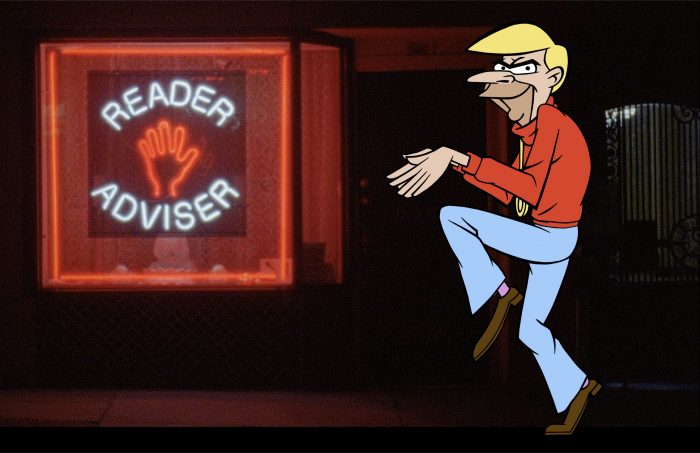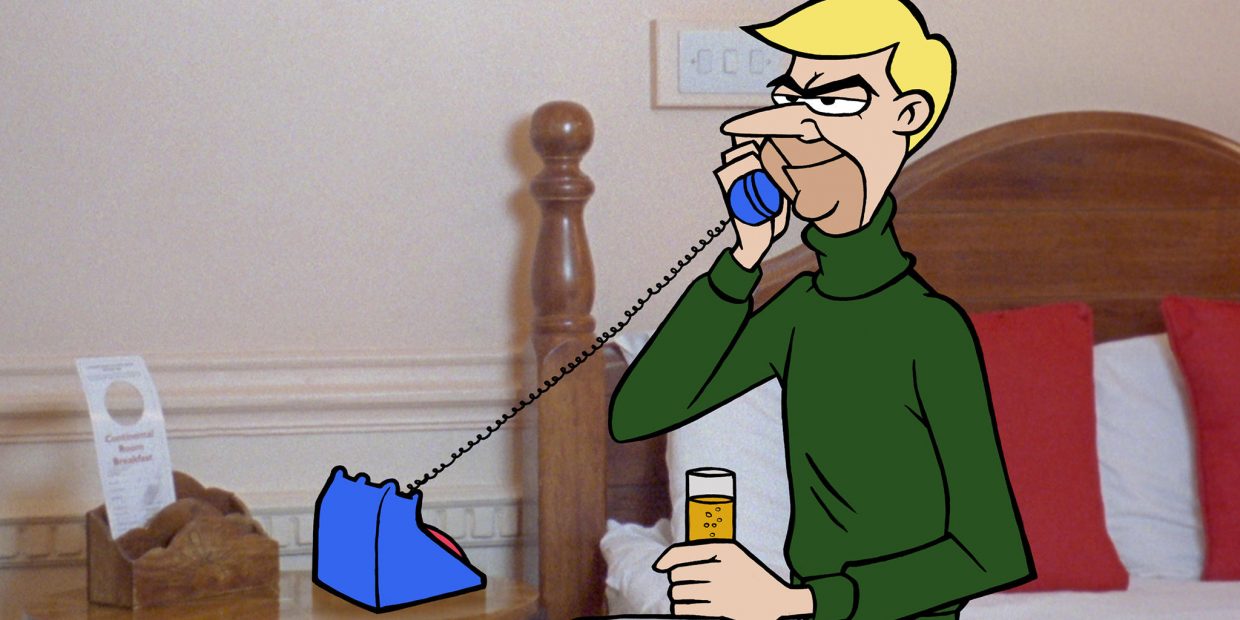Director: Richard Squires
Filtering the turbulent life of comedian and voice actor Paul Lynde through the zany tropes of his art, Richard Squires’ Doozy is a work of deceptively kitschy surfaces. Like a muffled cry for help, the anguish of Squires’ emotionally repressed subject is warped and stifled by the schemas of pop culture, flattening the star into a literally two-dimensional caricature.
It’s said that the barely closeted performer preferred to hide behind his characters, and so Doozy tells his story through an animated surrogate who embodies many of the traits of the typical Lynde role. Primarily, Squires’ documentary draws inspiration from his work at Hanna-Barbera, where his distinctive and effeminate voice typecast him as a villain.
Through a series of interviews with academic talking heads, the film breaks down the typical signifiers of a cartoon baddie – from his evil laugh to his skinny build – and argues that these clichés serve to mock and demonize the cultural “other.” At the same time, these superficial traits are imposed onto Clovis, a fictionalized version of Lynde who’s drawn like one of his H-B antagonists.

Just as Lynde’s campy characters in The Perils of Penelope Pitstop and It’s the Wolf would live a weekly cycle of nefarious plots and humiliating defeats, the actor’s own life is framed as a series of devilish schemes and comedic pitfalls. His nights of heavy drinking and picking up men are accompanied by a derisive laugh track and tonally jarring sound effects, like the “boing” that’s heard when he’s thrown out of a club. His anxious, guarded nature is reinterpreted as sneakiness, while all his desire and despair is distorted to fit the limited emotional spectrum of your average petty and predatory villain.
It’s a comic delivery for a sad reality, but Squires finds subversive ways to expose all this contrivance, challenging his audience to question their own responses. Clovis’ animated sequences usually unfold against the backdrop of real cities, where the sound of traffic lends a discordant sense of realism to his late night escapades. Meanwhile, a scene of a wasted Clovis running naked through the streets may seem comical at first glance, but as the film stays fixed on the same animation loop for over two minutes, the novelty of the image gives way to its sombre undercurrents.
All the while, Clovis’ sinister grin remains fixed on his face, branding him a villain by definition. Rather than attempting to dig beneath his snarky and flamboyant persona, Doozy contorts its subject into an object of ridicule and disdain, making the real Paul Lynde feel poignantly unknowable beneath the cultural veneer.





